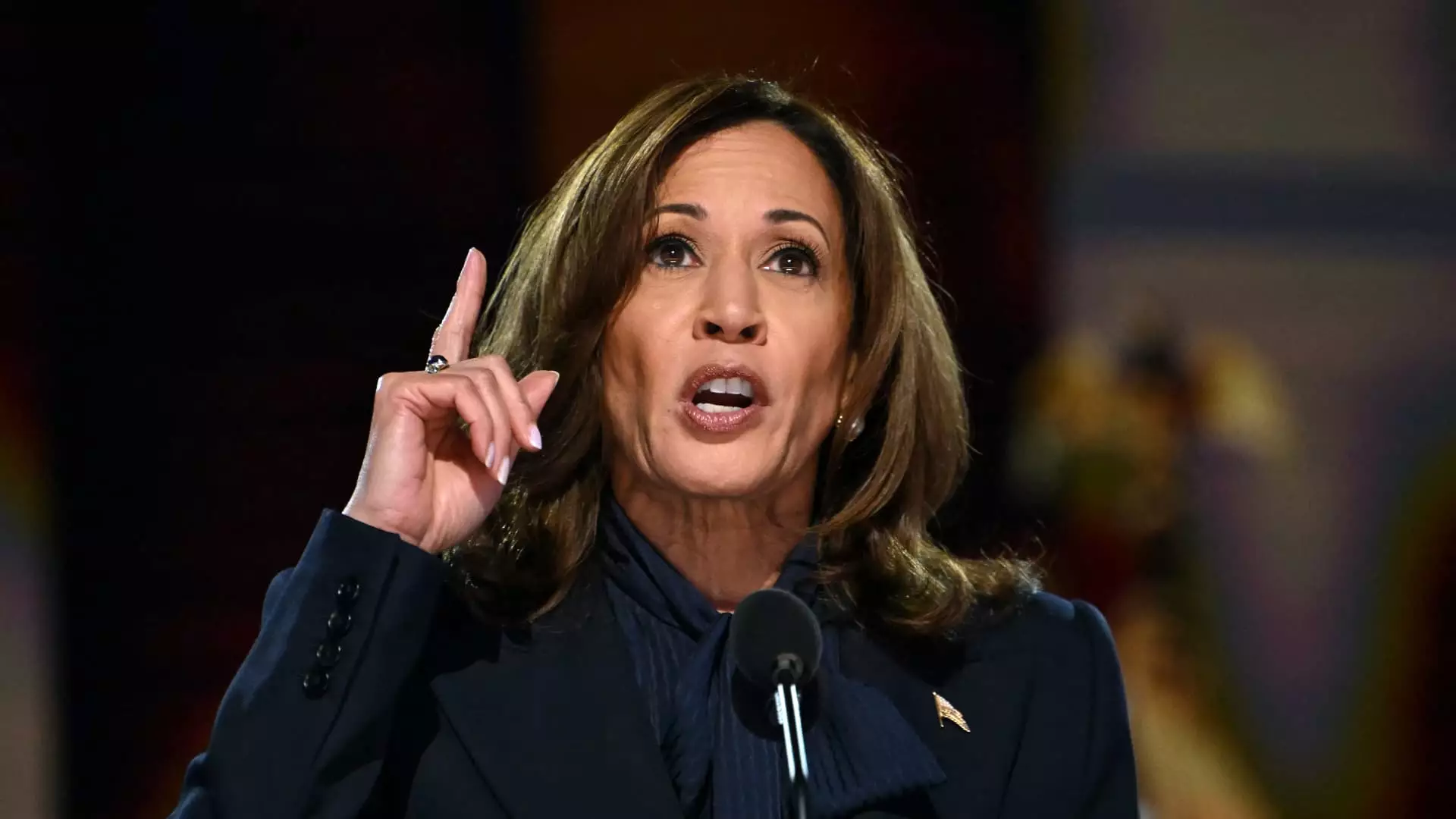Vice President Kamala Harris recently spoke out against Republican presidential nominee Donald Trump, accusing him of wanting to become an autocrat. Her bold statements during the Democratic presidential nomination acceptance speech in Chicago painted Trump as a leader who admires dictators and is easily manipulated by flattery. While it is important to hold political leaders accountable for their actions, it is equally crucial to analyze the validity of such accusations before making sweeping judgments.
Harris’ remarks about Trump cozying up to tyrants like Kim Jong-Un may resonate with some audiences, but they also carry a weight of bias and political agenda. By labeling Trump as an autocrat-in-the-making, Harris is employing a rhetoric that aims to evoke fear and outrage among voters. However, it is essential to delve deeper into the specific actions and policies of a leader before jumping to conclusions about their intentions and character.
The backlash from Trump in response to Harris’ accusations further highlights the divisiveness and polarized nature of current political discourse. By dismissing Harris as weak and ineffective, Trump perpetuates a cycle of personal attacks rather than engaging in meaningful dialogue about policy issues. This tit-for-tat approach only serves to deepen the existing rifts within society and detracts from the real issues at hand.
The testimonials from veterans of the American military and intelligence community, such as Rep. Elissa Slotkin and Sen. Mark Kelly, paint a grim picture of Trump’s leadership style. Accusations of Trump skipping intelligence briefings and disrespecting fallen veterans may strike a chord with viewers, but they also lack concrete evidence to support such assertions. It is crucial for politicians to back up their claims with verifiable facts rather than relying on emotional appeals.
Former officials like Leon Panetta warn against the dangers of isolationism and the abandonment of allies under a Trump administration. While reflecting on historical mistakes is essential for guiding future policy decisions, it is essential to approach complex geopolitical challenges with nuance and a commitment to dialogue. Building strong international alliances and fostering diplomatic relations should be at the forefront of any political agenda, regardless of partisan affiliations.
While holding political leaders accountable is a fundamental aspect of a healthy democracy, it is equally important to scrutinize the language and rhetoric used in such critiques. Vice President Harris’ accusations against Trump may resonate with some audiences, but they also raise questions about the underlying motives and biases driving such statements. As we navigate through a turbulent political landscape, it is essential to approach discussions with an open mind, a critical eye, and a commitment to promoting civil discourse.


Leave a Reply